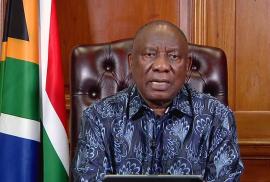
President Cyril Ramaphosa on Friday evening announced his intention to sign a Presidential Proclamation that will bring the Basic Education Laws Amendment (BELA) Act into operation, immediately.
The BELA Bill was passed by the 6th democratic Parliament on 26 October 2023. The President assented to the Bill on 13 September 2024.
During the public signing of the Bill, President Ramaphosa announced his decision to delay the implementation date for sections 4 and 5 by three months.
The President said in a statement issued this evening (20 December 2024) that he had met with the leaders of the parties to the Government of National Unity (GNU) today.
“I accordingly advised them that I would proceed to sign a Presidential Proclamation to bring the Basic Education Laws Amendment Act into operation from today. I have instructed the Minister of Basic Education to see to the full implementation of the BELA Act,” the President said.
Consensus
The President explained that at the time he assented to the BELA Bill, "I noted that a number of parties to the Government of National Unity and other key role players in our country had expressed their wish to further engage each other on sections of the bill that deal with issues of admission and language.”
“I said that whilst I had assented to the Bill, in the spirit of cooperation and meaningful engagement, I would delay the implementation date of the BELA Act in totality by three months.”
The three months would give the parties time to deliberate on these issues and make proposals on how the divergent views may be accommodated. He also said that should the parties not agree on an approach at the end of the three-month period, he would then direct the Minister and the Department to proceed with the implementation of the Act.
The President explained that he has also instructed the Basic Education Minister, Siviwe Gwarube, to do what is “necessary” as is customary with any law to ensure that the timeframe of implementation – particularly with regard to the preparedness of the system for universal Grade R access – and the consequential regulations setting out the norms and standards are prepared.
“All bodies and all officials responsible for the implementation of this Act are required at all times to act in accordance with the Constitution, the law and the relevant policies and regulations,” said President Ramaphosa.
The President said that over the last three months, discussions have been held with a view of reaching consensus on these outstanding clauses of the BELA Act.
Various formations outside of government have also made representations, both for and against the relevant sections.
Last week the President received a report from the GNU clearing house mechanism.
READ | Deputy President Mashatile clarifies position of the GNU on BELA Act
This is the structure which brings together the parties to the Government of National Unity and other parties represented in Parliament to deal with contentious issues and thereafter report to the leaders of the political parties represented in the GNU.
"In their final report, the parties agreed that the Basic Education Laws Amendment Act should not be sent back to Parliament to make changes to the sections that were in contention.
“The GNU clearing house participants agreed that the Act be fully implemented. This view was endorsed by the leaders of the parties to the GNU in a meeting I held with them today.”
READ | President notes settlement agreement with Solidarity on BELA Act
Transformation
In his statement, the President said the BELA Act is vital to the transformation of South Africa’s education system and is an important part of ongoing efforts to build an education system that is more effective and more equitable in line with the precepts of the Constitution.
“The BELA Act continues the work that has been done over the last 30 years to ensure that all children have equal access to quality education – from their early years and throughout their schooling.
“As a democratic country committed to building a new society, we have stated unequivocally that all children must get an education that prepares them to succeed in life, no matter what the circumstances of their birth might be, no matter where they live, no matter what language they speak.
“In implementing this Act, we are all ultimately guided by the Constitution.”
Equality in education
He stressed that the Bill of Rights guarantees the right of every person to equality and that it guarantees the right of every person to receive a basic education.
“We must therefore do everything in our means to ensure that every child, without exception, has equal access to a decent, quality education. We must therefore leave no child behind.
“Let us ensure that our children get the best education so that they can take our beautiful country and our diverse nation forward to a prosperous future.”
The first citizen said the Constitution states that every person has the right to receive education in the official language or languages of their choice where reasonably practicable.
This is a right that applies equally to an English-speaker as it does a Zulu-speaker.
“It applies equally to someone who speaks Afrikaans as it does to someone who speaks Xitsonga, Sesotho, Sepedi, isiXhosa, Setswana, Tshivenda, isiNdebele or siSwati. And now, it also applies equally to someone who uses the South African Sign Language.”
The Basic Education Laws Amendment Act enacts measures that strengthen the ability of schools to give effect to these Constitutional rights.
“In the application of this law, we must ensure that no language is diminished. Rather, we must work to ensure that all official languages are valued and promoted,” said the President. -SAnews.gov.za


